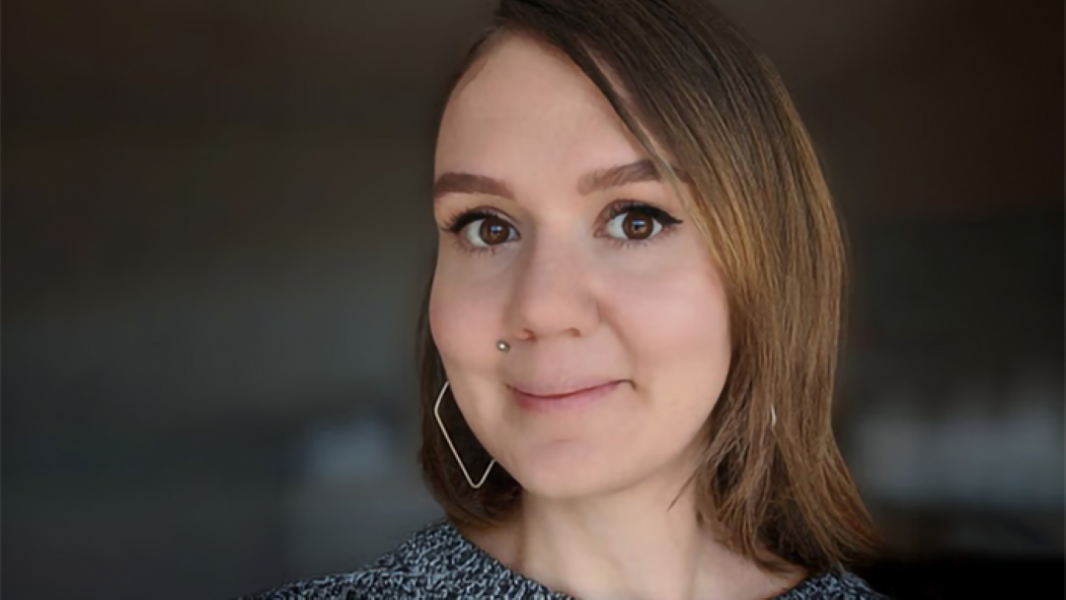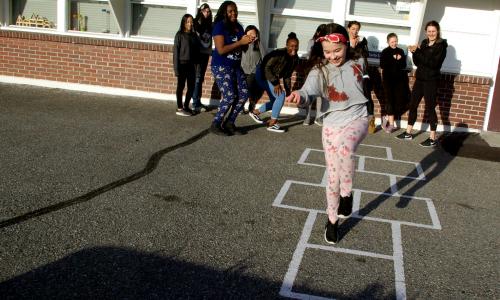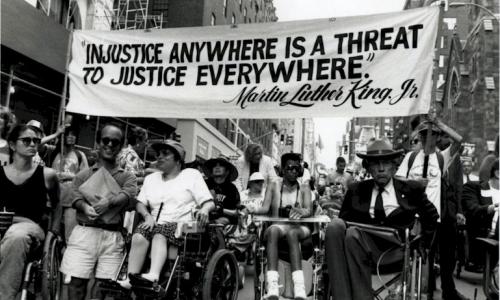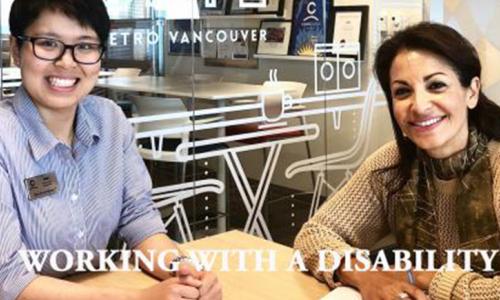
Witnessing friends and family flee Syria during the ongoing civil war left an indelible impression on Simon Fraser University undergraduate Anya Sass.
Originally from Calgary, AB, Sass traveled abroad for several years and was living in Syria with her partner as the civil war broke out. She says her commitment to advocating for refugee and migrant rights was spurred by the emotional experience of “watching friends and family leave the country as refugees.” *
Sass is this year’s recipient of the Rosemary Brown Undergraduate Award for Social Justice and the Professor Somjee Undergraduate Scholarship in Political Science. While working towards a double-major in gender, sexuality, and women’s studies and political science, she was also volunteering locally with Immigrant Services Society of British Columbia and with the Muslim Food Bank.
Today, Sass is helping migrants and refugees resettle in Cape Town, South Africa and taking on a new challenge doing advocacy work overseas.
Her unwavering commitment to providing intersectional and compassionate social justice solutions is evident as she describes her time studying and volunteering abroad.
After completing a semester abroad at the University of Cape Town, she completed two volunteer internships in Cape Town: one with the Adonis Musati Project and another with the Advocacy Programme at the Scalabrini Center of Cape Town.
The Adonis Musati Project is a non-profit that provides psychological support to asylum seekers and refugees. Sass’ official title was “communications intern”, and she says the role involved some complex, hands-on tasks.
“I helped them with various social media campaigns, client intake, as well as documenting and filing reports for the UNHCR related to incidents of xenophobia among many other things.”
Sass says her experiences in the departments of Political Science and Gender Sexuality and Women’s Studies provided a well-rounded framework to be able to deal with the intricacies of the role and taught her to take an intersectional approach to her work, which she thinks is key.
“Intersectionality is especially important when working with vulnerable and often marginalized communities,” she notes, “to be able to recognize how different experiences and identities also shape how individuals experience barriers and challenges differently. This is key to acting with empathy and also understanding that each person’s case is unique and needs to be approached differently.”
Relating her studies at SFU to her role today, Sass recalls how taking GSWS 208: Diagnosing Difference: Race and Gender in Global Medical Perspective, with Dr. Coleman Nye. She says she continues to reflect back on that courses core concepts which explored the different ways that race, gender and class are defined within medical knowledge systems, health technologies, and clinical practices across historical and cultural contexts.
Today, Sass is continuing her work with refugees in the Advocacy Programme at the Scalabrini Centre of Cape Town, extending her initial 6-month internship. The conditions of the pandemic have increased the need for the program’s services and the new roles has given her the chance to work on some higher-level advocacy projects. She is providing paralegal assistance related to documentation concerns and conducting research on behalf of the organization.
“Since we’ve moved to remote services, we’ve also greatly expanded our client base as well as have had to deal with a lot of new and unique challenges that migrant communities have been facing during the pandemic.”
Sass is passionate about her work, but she says it can also be emotionally challenging. “People often come to you in situations of great desperation, and you want to be able to help them as best you can. We do our best within our capacities, make referrals, and press for high-level changes when we need to, but these things can also take time, or you can hit a brick wall sometimes.”
Despite the challenges, Sass says the opportunity to work directly with asylum seekers and refugees and people has offered her very important insights.
“You learn how to communicate with people across different backgrounds, cultures, and languages with compassion, empathy, and care. Working one-on-one also helps you see and understand the gaps in policy and programs and really understand the difference between theory (policy) and practice.”
*Source for these details: https://www.ikbbc.ca/student_types/international/
This story was originally published on the Gender Sexuality, and Women's Studies website on April 12, 2021.













